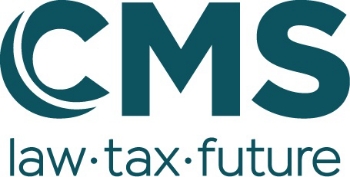Introduction
A frequent issue in internal investigations is whether the according documents – such as internal audits, records of employee interviews or summaries – are privileged from seizure by state authorities. Case law on this issue is inconsistent. The Braunschweig Regional Court recently decided(1) that internal investigation documents are protected under certain circumstances. The Hamburg Regional Court issued a landmark decision in 2010 on the privilege of internal investigation. At the time, the Hamburg public prosecutor's office was investigating a bank's board members. The bank, which was not charged by the public prosecutor, instructed a law firm to carry out an internal investigation. The public prosecutor's office seized records of interviews conducted between the lawyers and company employees, as well as related files and handwritten records which were kept at the law firm. The Hamburg Regional Court held that the internal investigation documents were not protected from seizure, because, in essence, the lawyers had only a mandate from the bank, which was not the subject of the investigation. Under the amendment to Section 160a of the Criminal Procedure Code (February 1 2011), the protection of the client relationship between lawyers and companies was extended (for further details please see "Determining legal privilege for internal audit documentation").
Following the Hamburg Regional Court decision, the regional courts in Mannheim and Bonn also took a restrictive stance regarding the legal privilege of internal investigation documents. The Giessen Regional Court, on the other hand, supported extended protection. The Braunschweig Regional Court has now also adopted a decision which expands the scope of protection of internal investigation documents.
Facts
In the Braunschweig Regional Court case, the public prosecutor's office conducted an investigation of several company directors. The investigation was not directed against the company or its parent. Following the investigation, the public prosecutor conducted a dawn raid at the company's business premises. After the raid, the parent instructed a law firm to carry out an internal investigation in order to clarify the facts. At a later stage, the public prosecutor also searched the parent's business premises and seized:
- documents which concerned correspondence between the lawyers and the parent's board of directors; and
- documents from the company's auditing department, which were not directly related to the subject matter of the investigation.
The Braunschweig Regional Court ruled part of the seizure illegal after the parent lodged an appeal.
Appeal successful
The appeal was successful with respect to the seizure of the documents prepared by the external lawyers in the internal investigation. The Braunschweig Regional Court ruled that these documents constituted documents in the context of a defence. According to the Braunschweig Regional Court, it did not matter that there was no investigation against the parent when the documents were drafted. So far many courts, including the Bonn Regional Court, have made the legal privilege of documents prepared by external lawyers dependent upon the opening of an investigation against the company. The Braunschweig Regional Court ruled that opening an investigation is not required as long as the company has at least reasonable grounds to expect that it could become the target of an investigation (which the court affirmed in the case at hand).
Appeal dismissed
The appeal was dismissed as far as it concerned the documents from the internal auditing department. Crucial to this decision was the fact that the internal auditing documents had been drafted at a time when the investigation of the employees was unknown – and thus no expectation of a potential investigation could have been triggered. Therefore, the reason for their preparation was not a (potential) later defence. However, the Braunschweig Regional Court also remarked that internal audit documents prepared by in-house lawyers could theoretically be protected from seizure.
Comment
The Braunschweig Regional Court decision supports companies (at least within the court's jurisdiction) that carry out internal investigations, because it reduces the risk that relevant documents will be seized by prosecuting authorities. To benefit from such protection, it is not crucial whether the company is already the official subject of a public investigation if the company has at least reasonable grounds to expect that an investigation against it might be commenced. The obiter dictum by the Braunschweig Regional Court regarding possible legal privilege of documents produced by in-house lawyers is also particularly interesting, since it could introduce a new development in this highly controversial issue. However, a considerable degree of legal uncertainty remains and companies must still be careful when setting up an internal investigation.
For further information on this topic please contact Christoff Soltau or Sandra Gramzow at CMS Hasche Sigle by telephone (+49 40 37 63 00) or email ([email protected] or [email protected]). The CMS Hasche Sigle website can be accessed at www.cms-hs.com.
Endnotes
(1) July 21 2015 (6 Qs 116/15).
This article was first published by the International Law Office, a premium online legal update service for major companies and law firms worldwide. Register for a free subscription.




